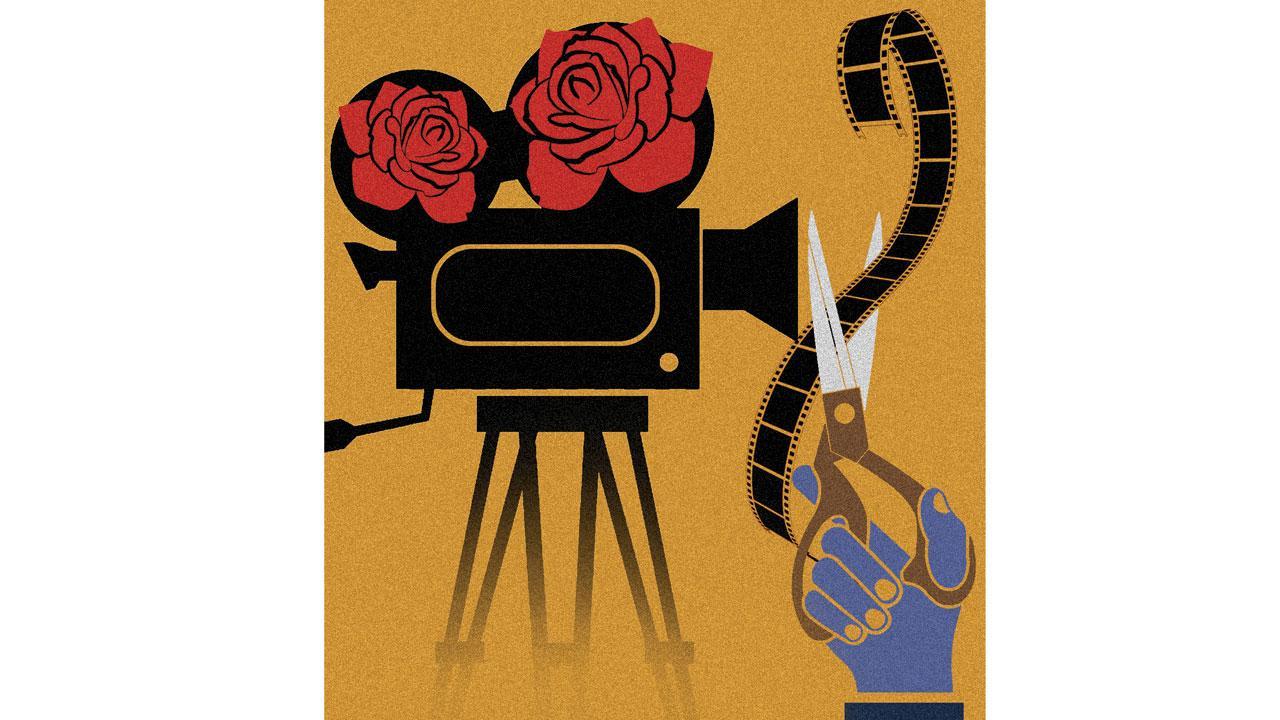In spite of yourself, you internalise that tinny voice that undermines you.

Illustration/Uday Mohite
![]() In 2011 I made a film called Partners In Crime—a documentary about art, capitalism, law, piracy, the marketplace. The film explored whether money or numbers can be our sole value system to decide the worth of art, ideas, people. If we cannot read beauty, skill, artistry, humour and insight as valuable in themselves, what sort of society and relationships—personal or professional—do we create? The film’s commentary meditated on the idea of love as a framework for understanding the nature of capitalism, the meaning of art and so, as a political pathway. Some audiences found the metaphor befuddling, which did affect the film’s journey. Despite the love it got from many, I predictably fixated on the negatives, letting them feed my self-doubt. Nevertheless, the political lens of love continued to invigorate my thinking and animate my work, eliciting both delight and dismissal.
In 2011 I made a film called Partners In Crime—a documentary about art, capitalism, law, piracy, the marketplace. The film explored whether money or numbers can be our sole value system to decide the worth of art, ideas, people. If we cannot read beauty, skill, artistry, humour and insight as valuable in themselves, what sort of society and relationships—personal or professional—do we create? The film’s commentary meditated on the idea of love as a framework for understanding the nature of capitalism, the meaning of art and so, as a political pathway. Some audiences found the metaphor befuddling, which did affect the film’s journey. Despite the love it got from many, I predictably fixated on the negatives, letting them feed my self-doubt. Nevertheless, the political lens of love continued to invigorate my thinking and animate my work, eliciting both delight and dismissal.
ADVERTISEMENT
Last Wednesday, a Bombay film club screened Partners in Crime. I confessed to a friend that I felt a bit awkward. “It’s an old film, you know, so…” She was puzzled, but creative people will understand. A lot in the world tells us we matter only when we tick certain kinds of boxes of importance. In spite of yourself, you internalise that tinny voice that undermines you.
The film screening was a revelation. Not a single person had trouble with the metaphor of love, which they responded to fluently, joyfully. It was a rare and beautiful opportunity to realise that unfamiliar ideas move through the world incrementally, from different corners. With time, the world falls into step with them. In these moments, you feel connected; less isolated.
Later, over drinks, a friend mentioned a cultural space in another city. I complained that I found them boring. As our discussion continued, it became a bit disconnected, I sensed my friend felt I was, as they say, “too negative.” Feeling misunderstood, I persisted, which only underlined the disconnect. Until a third friend suddenly said, “What you are trying to say is that there is a difference between programming and curation.” The mood opened up. Sometimes, one must soldier on through criticism, with an unpopular half-thought because you will suddenly encounter someone who will help you complete it.
Programming, simply filling up space, is indeed different from curation—pointing out the connections in art or ideas to generate new ways of thinking, a worldview. For that, you need to believe passionately in something. Without that belief, you can only tick the traditional boxes of “importance” and reinforce convention. Contemporary culture keeps programming us to “believe in yourself”. Ok. But is that enough? If we don’t believe in something bigger than ourselves, what tools do we have of recognising the meaning of something—in us or others—not already endorsed by the world? What do we connect with, who do we connect to? We can only function programmatically, serving the status quo, confusing validation for love, conformity for belonging and power for worth.
I ended the week watching a public conversation of Rahul Gandhi’s in California. He said, “Love is an action, not a feeling” and spoke of the need for a political vision embodying love, kindness, affection— not ideas we get to hearing in the political sphere, mitron. Invigorated by the thought, I declined an invitation to a networking event and raised a toast to connection.
Paromita Vohra is an award-winning Mumbai-based filmmaker, writer and curator working with fiction and non-fiction. Reach her at [email protected]
 Subscribe today by clicking the link and stay updated with the latest news!" Click here!
Subscribe today by clicking the link and stay updated with the latest news!" Click here!







